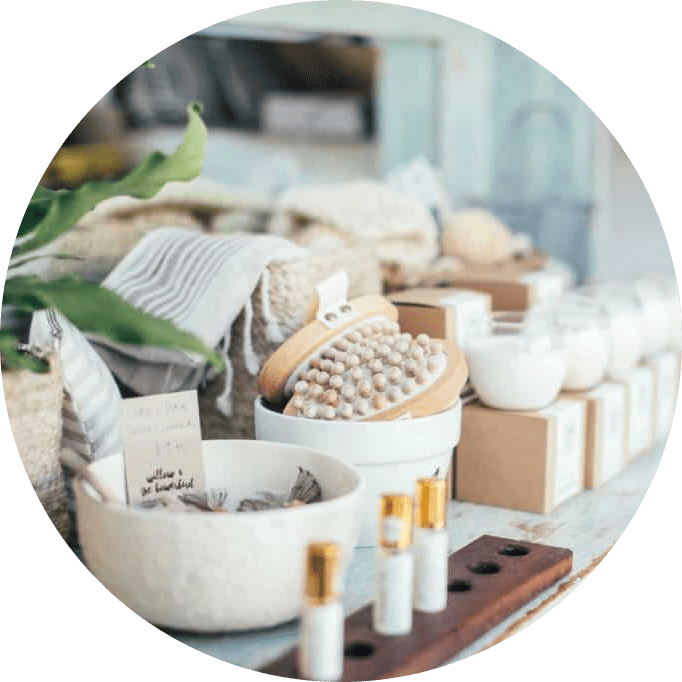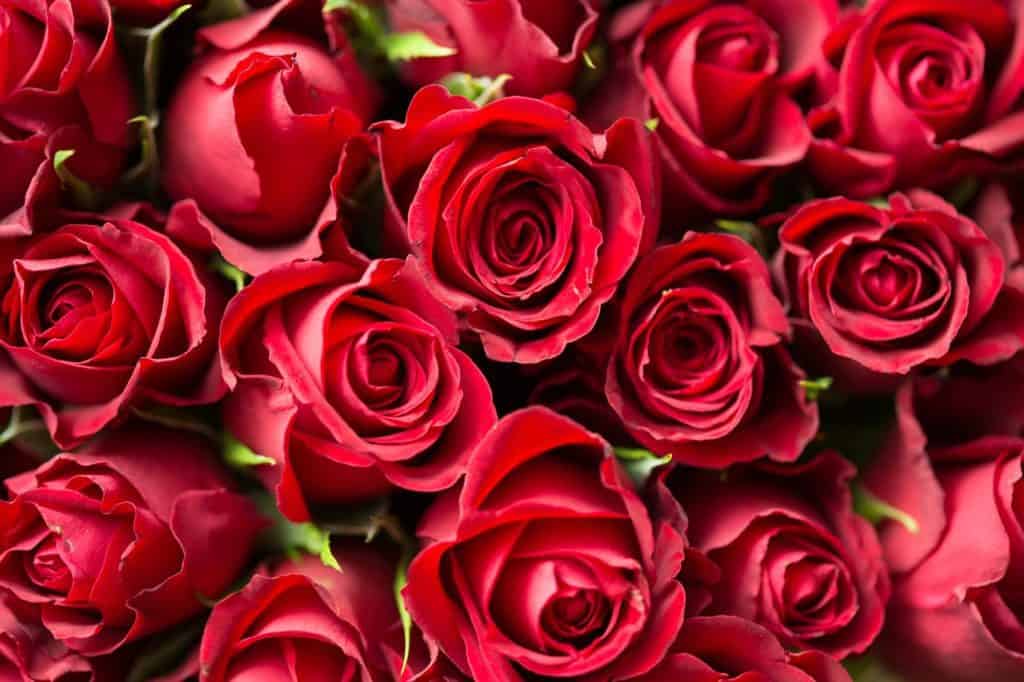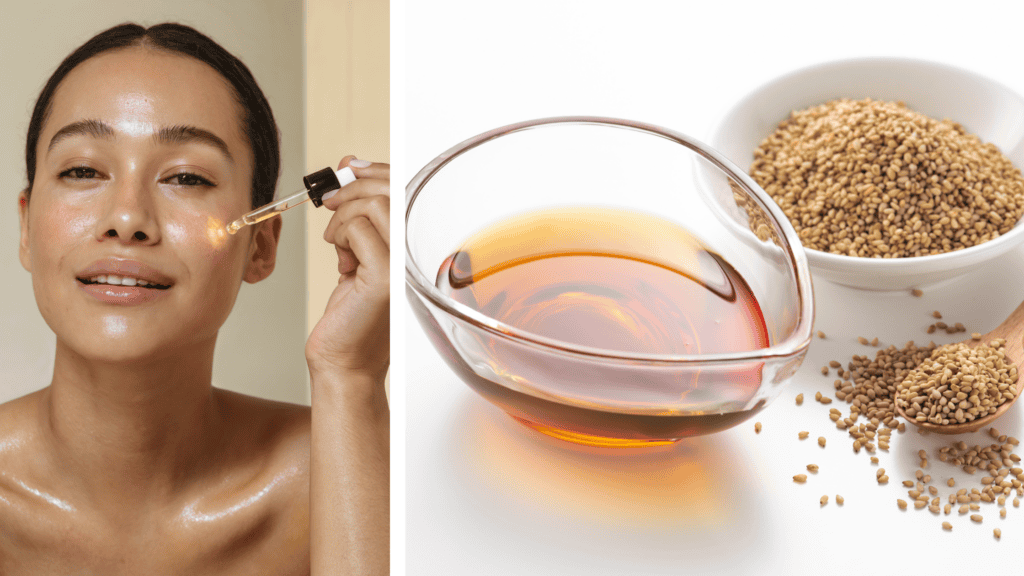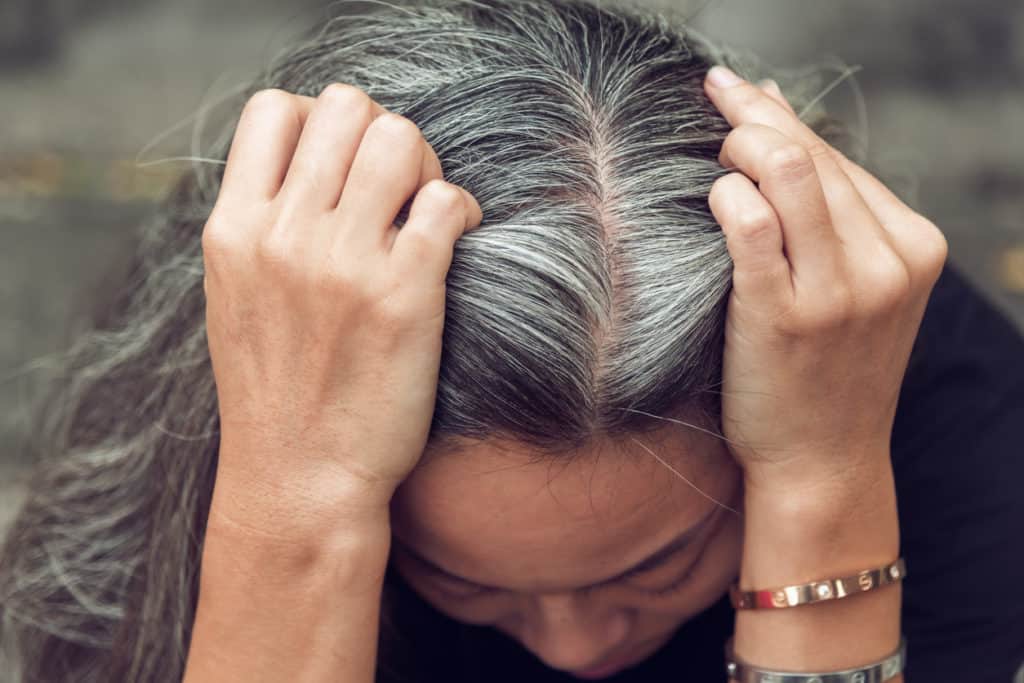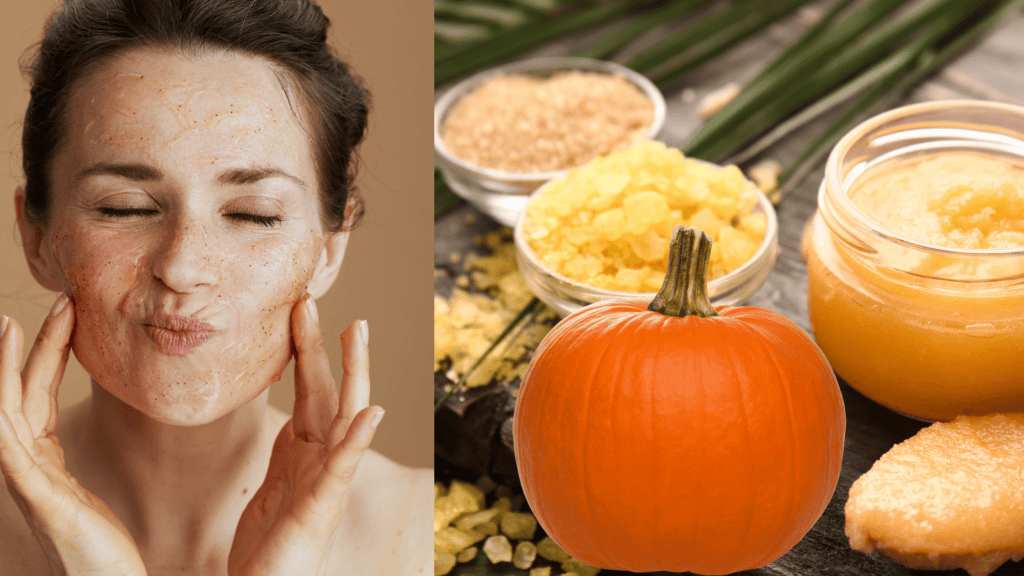Roses have long been a symbol of romantic love and beauty. The ancient Greeks and Romans cultivated huge rose gardens and used the petals to adorn banquets, fill their baths and crush to make lotions, balms, hydrosols, and exotic perfumes.
Cleopatra, a symbol of power and beauty in ancient Egypt, was well known for her beauty rituals that included lavish milk and honey baths strewn with rose petals. Archeologists also discovered wreaths of roses in Egyptian tombs.
Roses continued to be used cosmetically throughout history. By the 10th Century in Persia, a new steam distillation process produced a rich, heady, costly rose oil used for exotic perfumes and related issues.
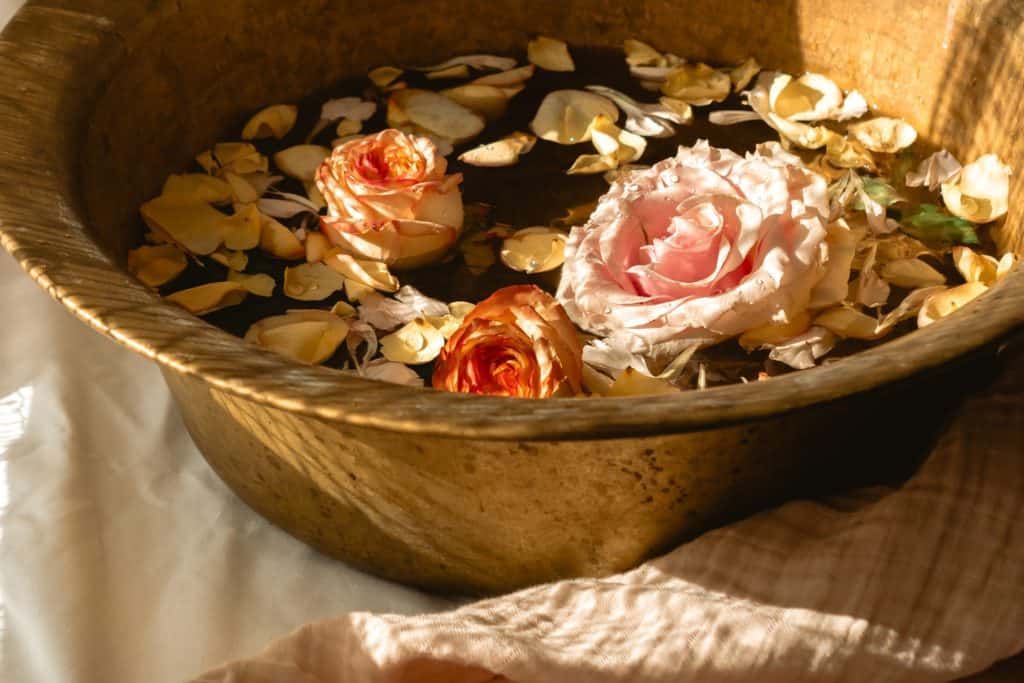
The Beauty Benefits of Rose Essential Oil.
The Beauty Benefits of Rose essential oil goes way beyond the physical. This essential oil should be mixed with a carrier oil, such as Jojoba oil, Argan oil, or Almond oil, and applied to the skin or scalp for various anti-aging and healing benefits.
- Moisture and Hydration
- Anti-aging
- Broken Capilliaries
- Acne or irritated skin
- Anti-septic
- Excema
- General skin tonic
- Astringent
Add drops of rose oil into the bath for skin softening and stimulating benefits. Rose oil is also indicated for the heart and circulatory systems of female reproduction and helps to relieve depression and anxiety. It is a calming, soothing, fragrant oil for various beauty and wellness needs.
Buy Rose essential oil for massage oil blends to relax and tone the muscles or diffused for aromatherapy to uplift the spirit. You can take inspiration from exotic Rose oil blends to make your DIY version.
You can also buy fragrant Rose oil blends for the face, body, and hair like this one from Provence Beauty.

The Natural Beauty Benefit Of Rose Water.
- Astringent
- Moisturising
- Cleansing
- Anti-aging
- Healing
- Brightening
- Toning
- Softening
Rosewater is a by-product of the steam distillation process that produces Rose essential Oil. In many parts of the world, this process still uses traditional methods. Rosewater has always been an exceptional product, as it still retains many of the same beneficial properties as the oil, although in a more diluted form.
Generally, Rosewater is made from the Damascan and the Centifolia roses and is rich in antioxidants, flavonoids, and vitamins. Rosewater was a standard product before commercial perfumes for its soothing, anti-inflammatory effect on the skin and soft, delicate fragrance.
Rosewater has anti-inflammatory, anti-microbial, and antiseptic properties that are soothing, hydrating, cleansing, and toning to the skin.
Buy Rosewater as a skin tonic and toner to clear oily, pimpled skin or more general hydration. It makes a beneficial hair spray that can soothe an irritated, flaky scalp and fragrance and smooth the hair.

We also love this Herbivore Botanicals Rose Hibiscus Face Mist – A Super-Fine Hydrating and Soothing Spray with Hyaluronic Acid and Organic Rose Water to Keep Skin Dewy and Fresh!

What Type of Roses Are Used For Cosmetic Beauty?
There are hundreds of different types of cultivated roses, thousands if you count the subcultures, but the main roses seen in the beauty industry are;
- Rosa Damascena
- Rosa Centifolia
- Rosa Gallica
- Rosa Moschata
The Essential Oil Of The Damascus Rose.
The Damascus Rose, Rosa Damascena, or The Damask Rose, also known as the Mohammadi Rose in Iran and the Otto Rose in Bulgaria, is one of the two main Roses cultivated primarily for their highly prized essential oil. This rose is also grown in Syria, Turkey, Russia, Pakistan, India, Uzbekistan, and China.
Bulgarian roses have the most potent scent of any rose in the world. The smell of roses will change according to the climate, growing conditions, and harvesting techniques.
The oil derives from a steam distillation process that uses 10,000 rose petals to make 5 milliliters of oil, making it one of the most expensive essential oils to purchase.
Turkish farmers produce over 60% of the annual world harvest. Learn more about the women who often do this work, picking the roses at precisely the right time to preserve their natural oils.
Are you looking for rose oil to brighten your skin? We love this;
Biossance Squalane + Vitamin C Rose Oil. A Facial Oil to Visibly Brighten, Hydrate, Firm, and Reveal Radiant Skin- made with Damascus Rose petals.

The Perfume Oil From The Rose, Rosa Centifolia.
Rosa Centifolia, a cabbage rose, is a hybrid rose developed by the Dutch between the 17th and 19th centuries. It has thin, fragile petals, formed into a round bloom, which hangs down due to its weight.
Rosa Centifolia is now predominantly grown in the French city of Grasse, the ‘perfume capital of the world,’ for the commercial production of rose oil in perfumes. It has a mild, sweet fragrance, with a soft honey scent that is clear and bright.
This rose is also grown in Morocco, France, and Egypt.
We love this Alteya Organic Centifolia Rose Water Spray-100% USDA Certified Organic Authentic Pure Rosa Centifolia Flower Water Steam-Distilled.

Rosa Gallica, The Apothecary Rose.
The Rosa Gallica, also known as the Gallic or french rose, bloomed wild throughout Europe. This rose was one of the first roses actively cultivated in Europe for cosmetic, aromatic, and medicinal benefits and became one of the most important cultivated roses.
Known for its sweet scent and beautiful vivid flowers, Rosa Gallica, is ‘the apothecary rose,‘ and the red rose of Lancaster, where it is the county flower of Lancashire, England.
The origin of Rosa Gallica remains unknown, but early Greek and Roman societies grew it in extensive flower gardens for the beautiful fragrant petals. They were used decoratively and in many medicines and cosmetics.
Rosa Gallica is often referred to as the Provin’s Rose, after the French town, south-east of Paris, which has been a commercial base for this rose since the thirteenth century.
Buy Rose Gallia dry rose petals to add to oils, bathwater, or infuse into DIY beauty.

Rosa Moschata, The Musk Rose.
The Musk Rose, Rosa Moschata, originated in southern Europe and the middle east. Although there are no found examples of the wild rose, it hails from the late 15th century.
The fragrant Noisette Roses, as well as the Damask Rose, have parentage from Rosa moschata.
You can see Rosa Moschata mentioned medicinal benefits in medieval herbal texts. Shakespeare even wrote about it in Midsummer night’s dream.
Often referred to as the Autumn Rose, the Moschata rose is prized for its highly fragrant, marble white flowers and its unusually long bloom period.
We love this Rose Musk, Premium Perfume Oil Attar Oil Alcohol-Free Vegan & Cruelty-Free by Amuze Fragrance.

Conclusion.
Roses were valuable throughout history for their beauty and fragrance and prized for medicinal and cosmetic benefits. Roses are still loved and revered today for those same qualities and are a beautiful and natural way to incorporate the miracle of the natural world into your beauty routines.
This post contains affiliate links. If you purchase through these links, we may earn a small commission, not affecting your sale.
